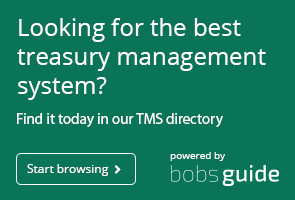
Numerous alternative investment funds (AIFs) remain unauthorised to operate under the Alternative Investment Fund Managers Directive (AIFMD), which comes into force tomorrow, a survey has revealed.
The research from BNY Mellon reveals that while 82 per cent of managers questioned confirmed the required AFIM structure has been established to meet tomorrow’s July 22nd deadline, 44 per cent will not have received authorisation from their local regulator by that date.
A significant proportion of managers will have work left to complete in respect of key elements of the AIFMD regulations, with 31 per cent still needing to implement risk and control systems, 36 per cent to update fund documentation and 38 per cent to appoint a depository.
Commenting on the survey’s findings, Hani Kablawi, head of Asset Servicing for Europe, Middle East & Africa at BNY Mellon, said:
“Now the authorisation deadline is upon us, the continuing challenge for managers will be to attract new inflows of money into their funds– but AIFMD’s impact is significant and, as our study highlights, causing some funds to question the longer-term feasibility of their business models. We are witnessing a step change taking place within the industry which will have far reaching consequences for funds and investors alike.
“With UCITS V pending and expected to be even more far-reaching in scope, now is the time for fund managers to start planning and to identify the lessons learned from AIFMD that can then be applied as they look to successfully navigate the changes that will bring around depositary functions, remuneration and administrative sanctions.”
Another survey from accountant Moore Stephens has revealed that managers of AIFs that fall below the threshold of the AIFMD are applying for authorisation anyway, despite the high cost of compliance.
Funds with less than €100 million under management, or less than €500 million if the assets are unleveraged, are subject to a lighter compliance regime than larger funds.
Ahead of tomorrow’s deadline, 90 per cent of sub-threshold managers are either AIMFD ready or have submitted applications to the FCA. Only a quarter of sub-threshold managers have considered restructuring their operations in order to avoid the scope of the directive entirely.
Avoiding the full requirements of the directive has obvious advantages, but it comes with the drawback that funds would be unable to grow beyond the threshold unless they sought full compliance.
Kelly Sheppard, Partner in Moore Stephens’ Financial Services Industry Group, commented:
“It seems to be the case that smaller firms are having to grin and bear it. The preparedness of sub-threshold managers is no surprise, with the prospect for future growth seemingly outweighing the arduous and costly requirements of the directive. This survey is a clear sign of small firms facing up to the reality of the AIFMD world they now operate in.”










